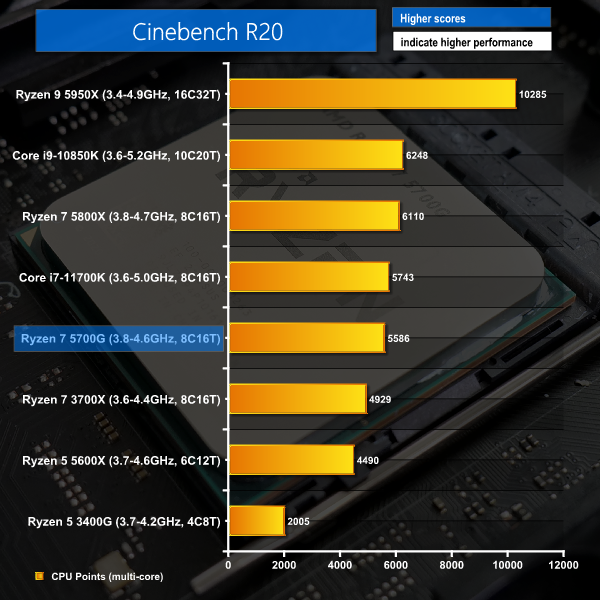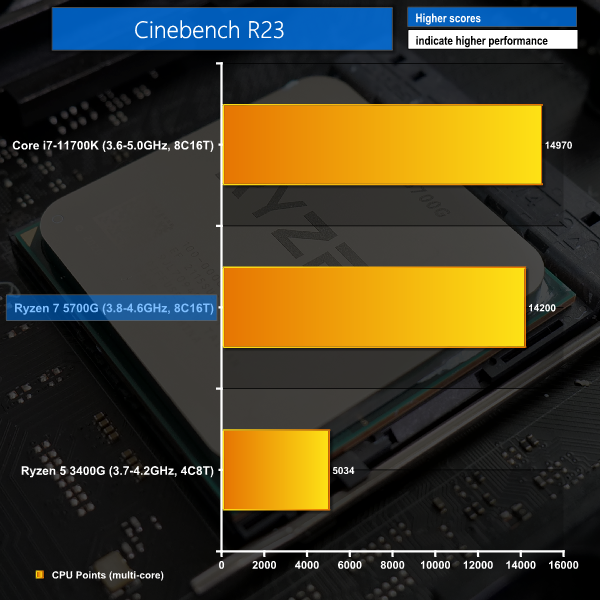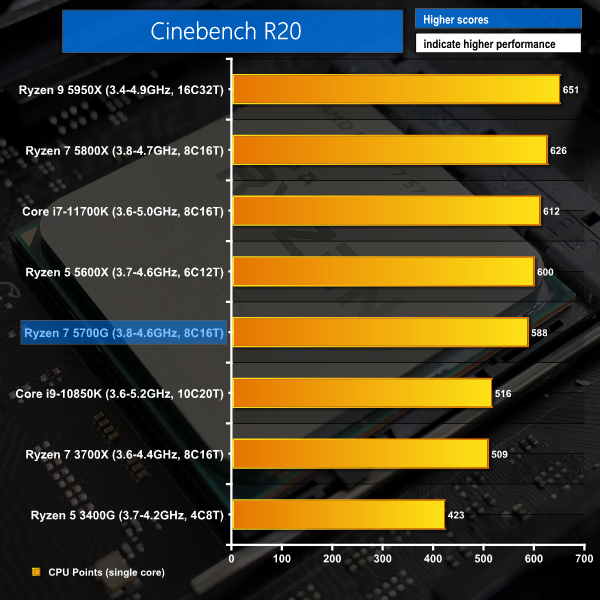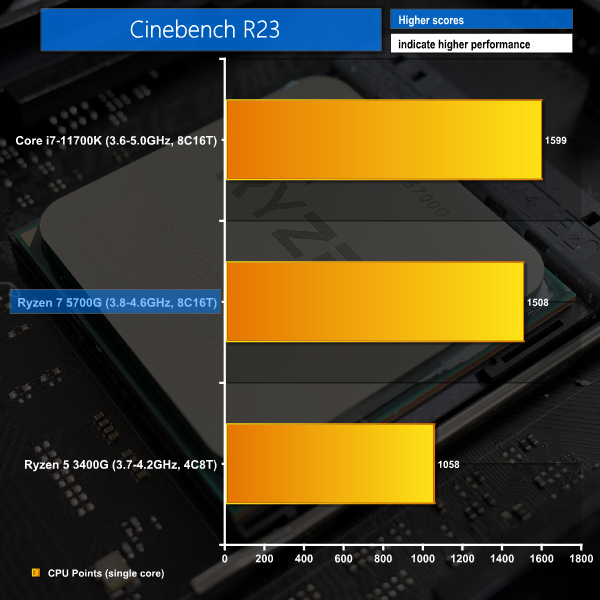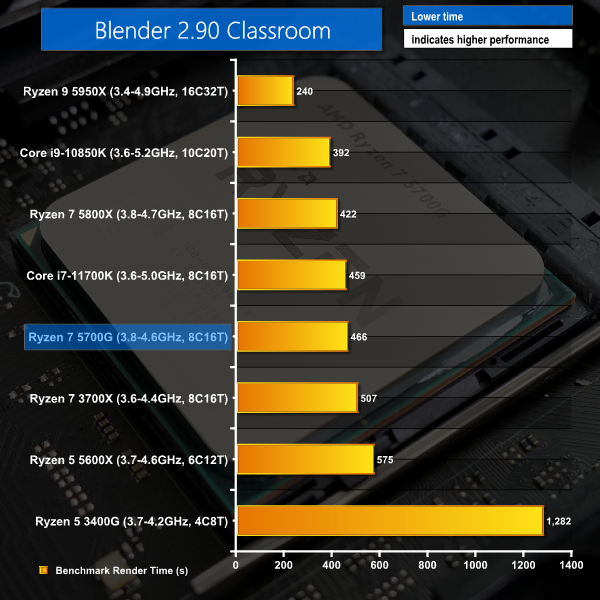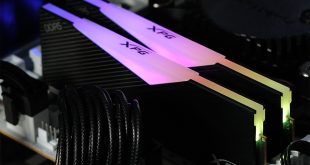Cinebench R20
Starting out with Cinebench R20 nT, the 5700G comes in very slightly behind the Core i7-11700K, and around 8.5% below the Ryzen 7 5800X. This is an indication of the clock speed limitations with a 65W TDP and 88W allowable package power for the 5700G’s sixteen compute threads. AMD’s APU does offer a 24% performance jump versus the cheaper, non-APU 5600X.
The newer R23 performance hierarchy is basically the same as with the shorter R20 run. And the performance loss for the 5700G after 10 mins of Cinebench R23 nT loading is non-existent. That’s positive for clock speed stability.
1T scoring of 588 again puts the 5700G behind the higher clocked 11700K and 5800X. This time, however, the Ryzen 5 5600X also overtakes AMD’s Zen 3 APU thanks to that six-core CPU’s better boost clock proficiency and greater cache capacity.
Once again, we see a drastic improvement for the 5700G versus the old 3400G APU.
Blender’s long Classroom test shows much of the same as we saw from Cinebench nT. The 5700G is very slightly behind the Core i7-11700K, while the Ryzen 7 5800X with its higher power budget is notably quicker. AMD’s eight-core APU does keep the 5600X at bay though, and the performance improvement versus the 3400G is once again gargantuan.
 KitGuru KitGuru.net – Tech News | Hardware News | Hardware Reviews | IOS | Mobile | Gaming | Graphics Cards
KitGuru KitGuru.net – Tech News | Hardware News | Hardware Reviews | IOS | Mobile | Gaming | Graphics Cards


